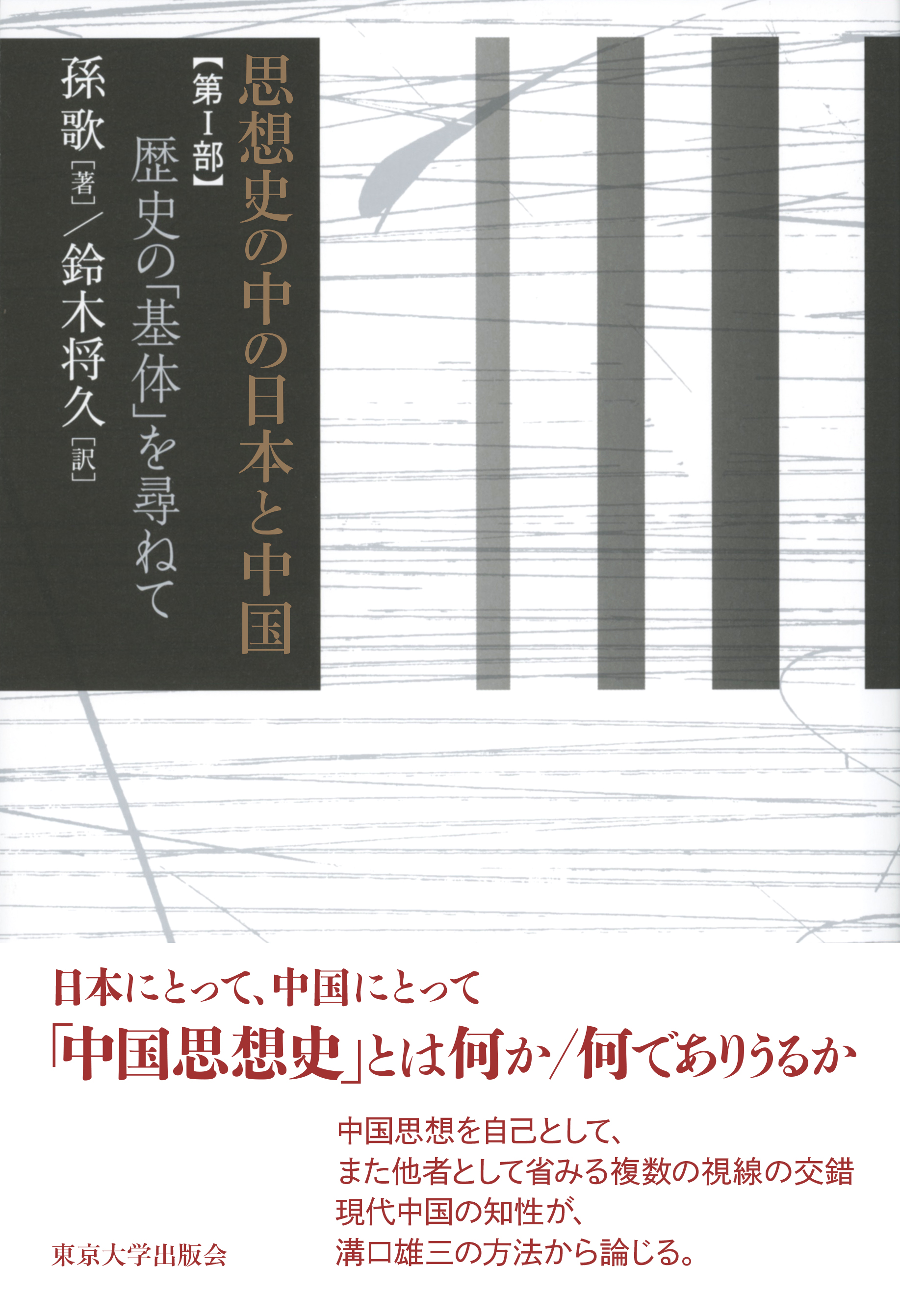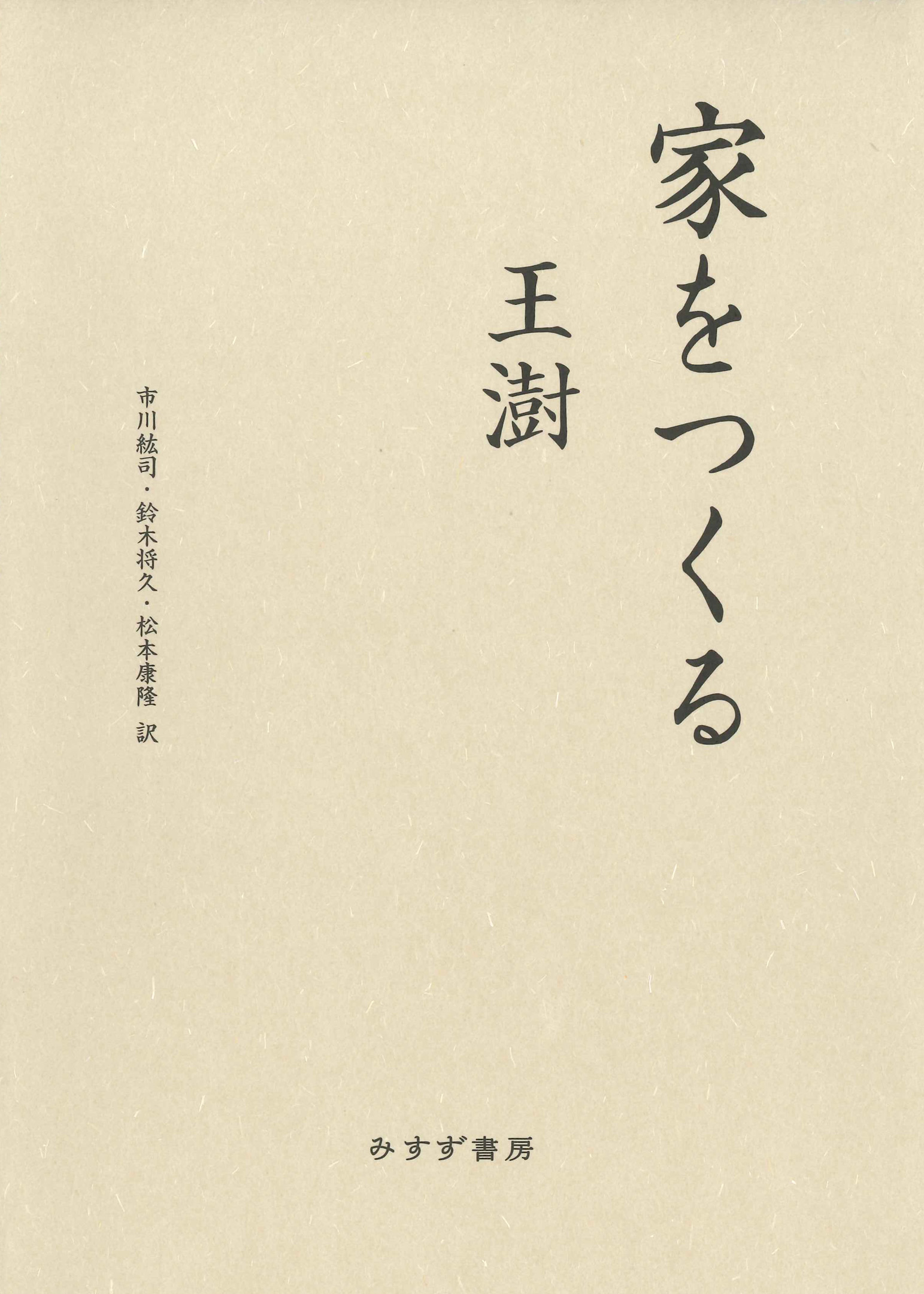
Title
Japan and China in the History of Thought, Part 1 Rekishi no ‘Kitai’ o Tazunete (Searching for the “Substrate” of History)
Size
232 pages, 127x188mm
Language
Japanese
Released
November 30, 2020
ISBN
978-4-13-010148-6
Published by
University of Tokyo Press
Book Info
See Book Availability at Library
Japanese Page
In this book, Sun Ge, a Chinese researcher of the history of intellectual thought, discusses Mizoguchi Yūzō, a Japanese researcher of Chinese thought. In particular, Sun Ge undertakes a meticulous reading of Mizoguchi’s first book, The Convolutions and Development of Premodern Chinese Thought, in which he discusses Li Zhuowu, a Chinese thinker of the late Ming and early Qing. In other words, this is a book with a complicated nested structure in which Sun Ge, who lives present-day China, interprets a discussion by the twentieth-century Japanese scholar Mizoguchi of the sixteenth-century Chinese thinker Li Zhuowu, which I have, moreover, translated into Japanese.
Let us go into this in a little more detail. The late Ming and early Qing were a time in China when not only was there, politically speaking, a great upheaval in the form of a change in dynasty, but the structure of society also underwent enormous change, and it was a period when people’s values and ideas changed. Li Zhuowu was a thinker who embodied these changes. However, his writings are known for being difficult to understand, and Mizoguchi endeavoured to understand these difficult writings as accurately as possible, on top of which he strove to comprehend the logical structure of Li Zhuowu’s ideas in line with his thinking. Furthermore, by positioning Li Zhuowu in the context of the history of Chinese thought, Mizoguchi sought to shed light on the enormous changes that occurred in China in the late Ming and early Qing as embodied by Li Zhuowu.
Sun Ge has endeavoured to understand Mizoguchi’s book as accurately as possible, but she does not discuss the question of whether or not Mizoguchi’s understanding of Li Zhuowu is correct. Rather, to borrow Sun Ge’s phrase, she interrogates Mizoguchi’s “cognitive framework.” “Cognitive framework” here refers to the way of thinking underpinning Mizoguchi’s discussion of Li Zhuowu.
Sun Ge also pays particular attention, for example, to the fact that Mizoguchi attached importance to the “principle of the physical.” Here, “physical” contrasts with “metaphysical.” Whereas “metaphysical” refers to an abstract, conceptual plane, “physical” refers to the actual, everyday plane of existence, and it is the “principle of the physical” that seeks to discover the logic governing this everyday plane. Focusing on the “principle of the physical,” Sun Ge clarifies Mizoguchi’s stance towards history which underlies his perceptions. According to Sun Ge, Mizoguchi understood history as a constantly changing disorderly current that cannot be restored to the level of conceptual ideas and sought to confront its pulsations directly.
The reason that the “principle of the physical” is important is that this way of thinking, which eschews any reduction to fixed ideas and accepts actual changes as they are on the level of quotidianity, provides us with some hints. That is to say, by reading Mizoguchi’s book and discussing the “principle of the physical,” Sun Ge seeks to jolt our own “conceptual framework.” The perceptions of contemporary people have become fixed over time, and it could be said that casting off these fixed ideas and seeking out new perceptions is the task that lies ahead of this book.
The main topic explored in this book is the question of how to understand China’s history. But thinking about China’s history is not a question specific to the single country of China, and it leads on to a renewal of our own “conceptual framework” and the search for a new form of universality.
(Written by SUZUKI Masahisa, Professor, Graduate School of Humanities and Sociology / 2021)
Related Info
孫歌 (著) “思想史中的日本与中国”published by Shanghai Jiao Tong University Press
Paju Book Awards
https://item.jd.com/12179827.html



 Find a book
Find a book


 eBook
eBook